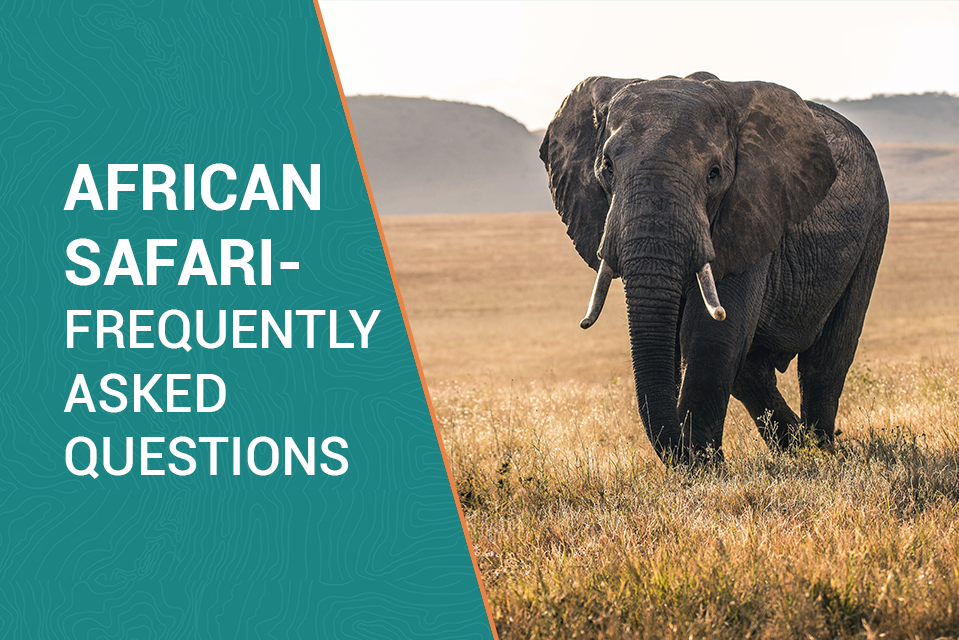
Africa, an iconic safari destination, is synonymous with the word safari. A highly biodiverse region with a variety of fauna and flora, it is the ultimate safari destination. Planning an African safari can take up a lot of time. You’ll have questions such as which country would be ideal for big five sightings or when is the best time to go on safari in Africa? Generally, once you start your planning, your safari tour operator will answer all your questions. However, our list of Frequently Asked Questions offers you a head start. These will answer your queries, making it easier to plan your safari adventure.
- 1. When is the best time to travel to Africa?
- 2. Is Tanzania a family-friendly safari destination?
- 3. How safe is it to travel in Africa?
- 4. What should I wear and take on safari in Africa?
- 5. What languages are spoken in Africa?
- 6. What currency is used in Africa?
- 7. How much money should I carry on my Tanzanian safari?
- 8. What are the Visa and Passport requirements?
- 9. What about mosquito nets and repellent?
- 10. How safe is the water and food in Africa?
- 11. How to make an emergency call in Africa?
- 12. Which are Africa’s Best birding spots?
- 13. Where are the best African destinations to see the big five?
1. When is the best time to travel to Africa?
Ideally, the dry season is the best time for wildlife viewing in the African bush. During this time, the vegetation dries up, giving safari goers a clearer view of the wildlife. In addition, animals congregate around the water sources, which are in shorter supply during the dry months. In contrast, the wet season is the best time for bird watching in several African countries plus the landscape blossoms from dry plains to lush grasslands so it’s a very beautiful time to visit. The verdant landscape during the wet months attracts thousands of migrating bird species, making it a bird watcher’s paradise. Keep in mind that often during the wet months, the African park roads may become inaccessible so bird watching safaris may need more planning.
The best time to visit an African country depends on your plans. Some people want to explore the wilderness, while others want to go on cultural and historical adventures. Then there are adrenaline junkies who want to scale Africa’s tallest mountains or white water raft on thrilling rivers
Our handy table puts together the ideal time to visit some of Africa’s premium safari destinations. It also shows the best time for bird-watching.
| Country | Best time for Wildlife Viewing | Best time for Birding |
| Botswana | May to October | November to April |
| Kenya | January to February, June to October | October to February, June, July |
| Madagascar | April to October | September to December |
| Namibia | July to October | November to April |
| South Africa | May to September | September to March |
| Tanzania | July to October | October-December, March-May |
| Uganda | December to February, June to August | May to September |
| Zambia | June to November | October to April |
| Zimbabwe | July and October | October to March |
2. Is Tanzania a family-friendly safari destination?
The African continent offers a plethora of family-friendly safaris. When you contact a safari agency, be sure to ask them for a family-friendly safari package. Some African accommodations have an age limit for children while others offer a child-friendly and secure environment. Some lodges take it a step further and provide private nannies for children of a certain age. Many guides love showing children the wilderness in detail, for example, in Kenya your children will get to learn the art of tracking animals from experienced Maasai guides. African locals are warm and welcoming, and love to show you their home, with great guiding a huge part of a rewarding African safari experience.
3. How safe is it to travel in Africa?
Africa is a safe place to visit on a wildlife safari arranged by a reputable safari agency chosen by you. Make sure you find out about the safari agency and the African country you want to visit as much as you can, and once there, follow some common-sense guidelines.
Here are some guidelines that will keep you safe in Africa:
- Avoid travelling alone at night
- Avoid visiting isolated roads and places
- Keep your valuables locked in a hotel safe
- On game drives, always follow your guide’s advice
Refer to the following Safety Resources for the respective country:
- Botswana Travel Safety Tips
- Kenya Travel Safety Tips
- Madagascar Travel Safety Tips
- South Africa Travel Safety Tips
- Tanzania Travel Safety Tips
4. What should I wear and take on safari in Africa?
Safari visitors need to pack light, there isn’t any need for fancy clothes in the bush, and laundry is often available so things can be washed regularly. You can pack 2-3 sets of neutral coloured clothes and some layers for the cool night and early morning temperatures. Also, pack some gloves, scarf, and hat for the colder months. Don’t pack camouflage clothing. Refer to our detailed guide of African safari essentials for further information on what to pack.
During the safari, you should bring along a daypack to carry items such as:
- Sunscreen, sunglasses, safari hat, lip balm
- Camera, lenses, spare batteries, binoculars
- Waste bags to avoid littering
- Insect repellent, hand sanitiser, tissues
- Notebook to write down what you see
5. What languages are spoken in Africa?
An estimated 2,000 languages are spoken throughout Africa. In several African countries, English is used for official documents and formal written communication. Many African countries have several official languages, one of them being English. Hundreds of millions of people speak English in Africa: Nigeria, Ethiopia, Tanzania, South Africa and Kenya have the highest number of English speakers.
Safari guides are very likely to speak English as well as other languages. If you have a preference for a language, ask your safari operator to arrange this in advance.
For your interest, we have listed some of the popular African Safari countries with their official languages.
| Country | Official Languages |
| Botswana | English, Tswana |
| Kenya | English, Swahili |
| Madagascar | English, Malagasy, French |
| Namibia | English |
| South Africa | English, Afrikaans, 9 Bantu languages |
| Tanzania | English, Swahili |
| Uganda | English, Swahili |
| Zambia | Bemba, Nyanja, English |
| Zimbabwe | Shona, Ndebele, English |
6. What currency is used in Africa?
Foreign currencies such as US Dollars, Pound Sterling and Euros are accepted at accommodations, hotels, and shops throughout Africa. They also accept credit cards, but it isn’t accepted everywhere. If you want to convert your currency to local currency, use banks, Forex at the airport or ATMs.
To make things a little simpler, we have shared a quick currency conversion (2021):
The last column displays the current values of the respective African currency equivalent to a US dollar.
| Country | Official Currency | Currency Conversion 2021 (African currency value = 1 US Dollar) |
| Botswana | Botswana pula | 11.46 |
| Kenya | Kenyan shilling | 112.16 |
| Madagascar | Malagasy ariary | 3982.80 |
| Namibia | Namibian dollar | 15.23 |
| South Africa | South African rand | 15.25 |
| Tanzania | Tanzanian shilling | 2302.00 |
| Uganda | Ugandan shilling | 3535.23 |
| Zambia | Zambian kwacha | 17.55 |
| Zimbabwe | Zimbabwe dollar | 322 |
7. How much money should I carry on my Tanzanian safari?
Prepaid safari packages often include vehicle transfers, accommodations and safari activities. Some of them also include domestic flights. On an African safari, you will need money at hand to tip the accommodation staff and guides. Although safaris packages usually pay for the activities, the price for optional activities is separate. Additionally, you might want to purchase souvenirs, snacks, or drinks at the local shops. Some of these shops may not accept credit cards, so it’s advisable to have cash for such additional expenses.
8. What are the Visa and Passport requirements?
Every African country has its own set of visa and passport requirements. The official embassy website of the respective country will provide you with information as well as the process of application.
Basic visa and passport requirements for entering African countries:
- A passport with at least six months validity. The passport should have at least 2 blank pages.
- People who travel FROM yellow fever-infected countries such as Uganda, Ethiopia, and Kenya need to provide yellow fever vaccination certificates.
- Visas are often mandatory for all travellers with a few exemptions – check with the official embassy.
In some African countries, visitors can get their visas on arrival, either at the airport or the border entry posts. Tanzania, Uganda, Madagascar, Botswana, Namibia, and Zambia are some African countries that provide visas on arrival. In 2021, Kenya declared that it wouldn’t be issuing visas on arrivals so there are now two advance options, applying online or at the Kenyan embassy. Other countries, for example Tanzania, also have efficient online visa application schemes.
9. What about mosquito nets and repellent?
Algeria and Lesotho are the only malaria-free African countries. As such it is important to take all the necessary precautions when you plan a trip: get your antimalarial prescriptions before you leave for Africa and take mosquito repellant with you. Safari accommodations, whether you are staying in a tented camp or luxury lodge, should provide mosquito nets. Pack some full sleeve shirts/blouses and trousers/slacks to cover yourself at sunset and during the evening, the time when mosquitoes are most active.
10. How safe is the water and food in Africa?
Food is a big part of a safari experience and meals are often one of the highlights. Hearty meals are served at your accommodation and packed lunches often provided if you’re out and about all day. You might have the chance to taste some African delicacies, the speciality of the respective country. Avoid drinking tap water in Africa, stick to only bottled water.
11. How to make an emergency call in Africa?
Each country has a different emergency police number. To make it easy for you, we have listed the emergency numbers for the top African safari countries.
| Country | Emergency Police Number |
| Botswana | 999 |
| Kenya | 911, 999, 112 |
| Madagascar | 117 |
| Namibia | 10111 |
| South Africa | 10111 |
| Tanzania | 112 |
| Uganda | 112 |
| Zambia | 999 |
| Zimbabwe | 999 |
12. Which are Africa’s Best birding spots?
Africa is home to over 2,300 bird species, of which 64% are endemic to the continent. We have put together a list of Africa’s top birding destinations, where you can expect to see remarkable bird species such as African fish eagle, African pygmy-kingfisher, Böhm’s bee-eater, great cormorant, golden oriole, grey crowned crane, hooded vulture, lilac-breasted roller, silvery-cheeked hornbill, white-bellied go-away bird, and white-faced duck. Coincidentally, these destinations also offer excellent wildlife viewing spots. You can watch the great wildebeest migration in Maasai Mara and Serengeti, go gorilla tracking in the heart of Uganda, or explore marine life in the coastal getaways.
- Botswana: Okavango Delta, Chobe National Park, Makgadikgadi Salt Pans, Nata Bird Sanctuary, Kalhari, Khutse Game Reserve, Lake Ngami, Savuti Marsh.
- Kenya: Arabuko Sokoke Forest, Kakamega Forest, Kinangop Plateau, Lake Baringo, Lake Naivasha, Masai Mara National Reserve, Mida Creek, Mt Kenya National Park, Nairobi National Park, Samburu & Buffalo Springs National Reserve.
- Madagascar: Analamazaotra Reserve, Tsingy de Bemaraha National Park, Nosy Ve, Andasibe National Park, Mantadia National Park, Ranomafana National Park, Isalo National Park, Lake Tsarasaotra, Ampijoroa Forest Station, The Mangoky-Ihotry wetland complex.
- Namibia: Caprivi Strip, Etosha National Park, Ongava Private Game Reserve, Namib Desert, Spitzkoppe, Walvis Bay, Waterberg Plateau National Park.
- South Africa: Kruger National Park, Kirstenbosch Botanical Gardens, Mkhuze Game Reserve, Cape Coast, uKhahlamba-Drakensberg Park, Wakkerstroom, iSimangaliso Wetland Park.
- Tanzania: Selous National Park, Serengeti Plains, Ngorongoro Conservation Area, Lake Manyara, Tarangire National Park, Arusha National Park, Mahale Mountain National Park, Gombe National Park, Katavi National Park.
- Uganda: Bwindi Impenetrable National Park, Budongo Forest, Kibale Forest National Park, Lake Mburo National Park, Mabamba Bay Wetland, Rwenzori Mountains National Park, Mgahinga Gorilla National Park, Murchison Falls National Park, Queen Elizabeth National park, Semuliki National Park.
- Zambia: Lochinvar National Park, Lower Zambezi National Park, South Luangwa National Park.
- Zimbabwe: Hwange National Park Mana Pools National Park.
Refer to our beginner’s bird-watching guide to have a memorable birding safari experience.
13. Where are the best African destinations to see the big five?
Africa’s big five earned their name because they were the most difficult to hunt in the past. The hunters considered killing the big five an achievement and brought them home as trophies. So over the centuries, the name stuck. Now, these precious wildlife creatures are protected in wildlife sanctuaries throughout Africa. We have listed 16 destinations where the chances of spotting the big five are the highest.
- Chobe National Park, Botswana
- Moremi Game Reserve, Botswana
- Okavango Delta, Botswana
- Etosha National Park, Namibia
- Waterberg Plateau Park, Namibia
- Majete Game Reserve, Malawi
- Akagera National Park, Rwanda
- Addo Elephant National Park, South Africa
- Kruger National Park, South Africa
- Pilanesberg National Park, South Africa
- Phinda Game Reserve, South Africa
- Sabi Sands Game Reserve, South Africa
- Serengeti National Park, Tanzania
- Ngorongoro Conservation Area, Tanzania
- Murchison Falls National Park, Uganda
- Mana Pools National Park, Zimbabwe
Leave a Reply
Your email address will not be published. Required fields are marked *

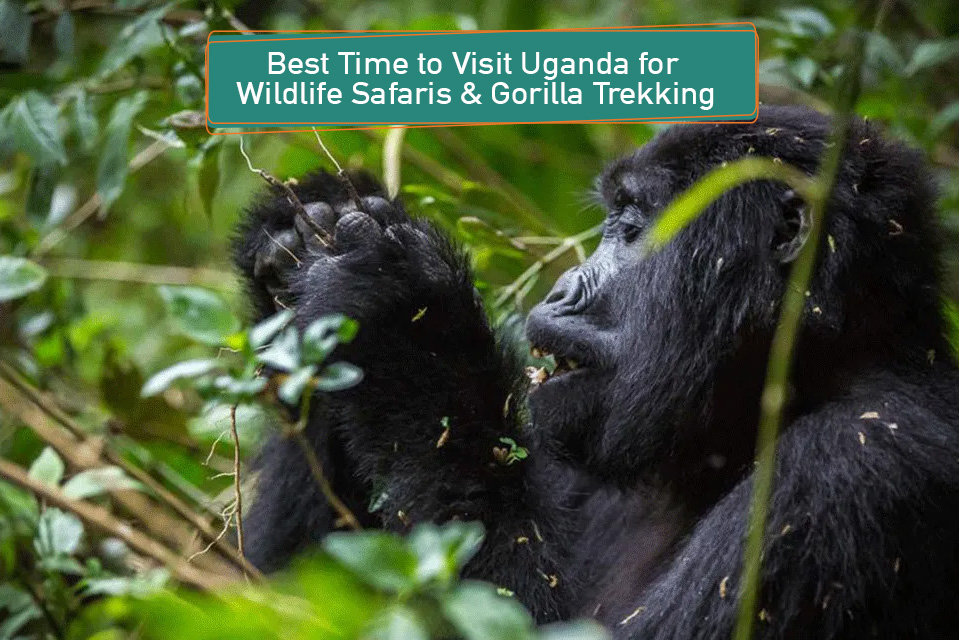
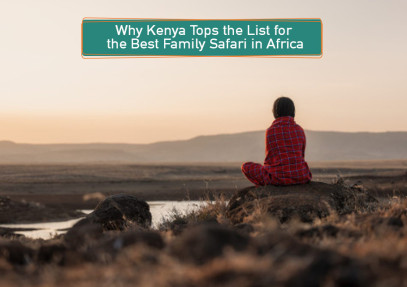
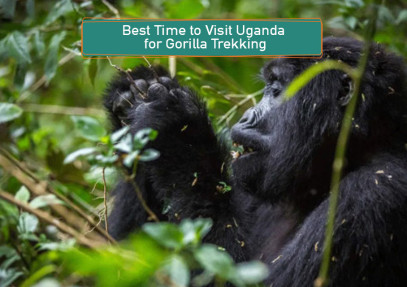

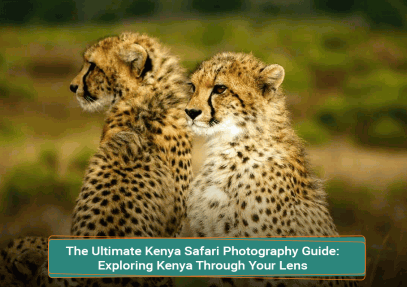
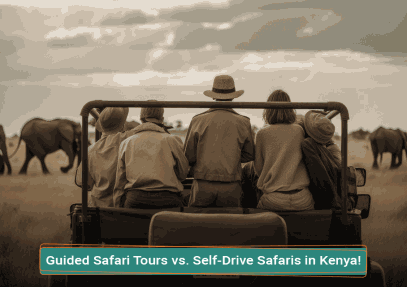
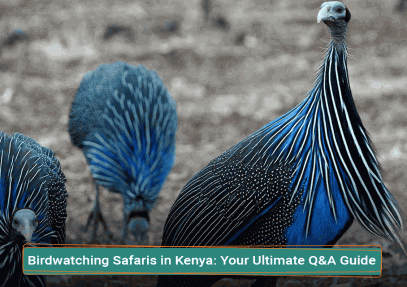
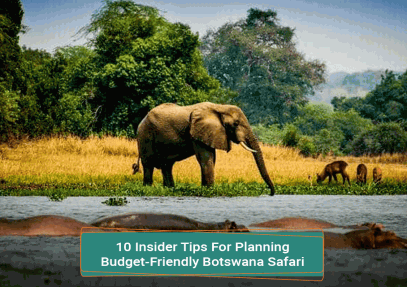
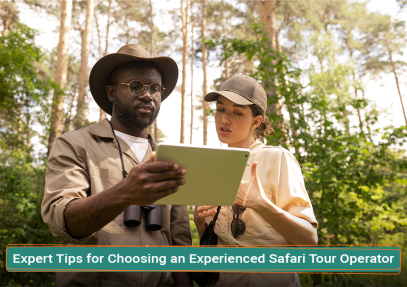
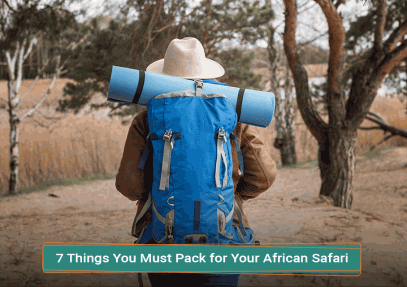
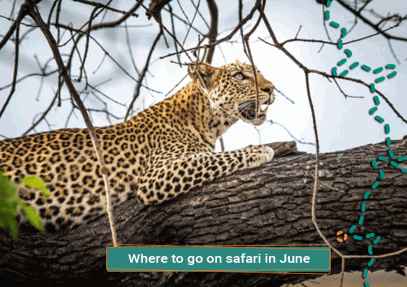
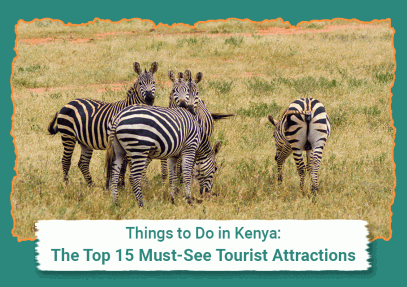
No Comments